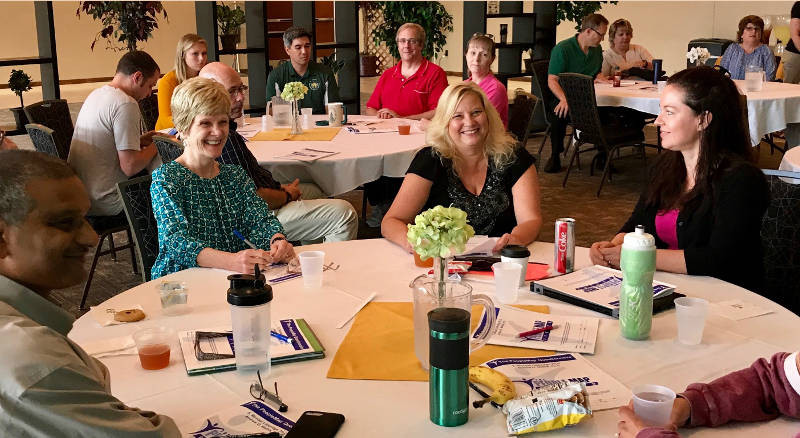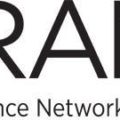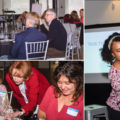Last updated on January 29th, 2019
What if you had a simple tool that you could use every day to help you to be your very best, to help you understand your boss, your co-workers, and even your family? What if this tool also helped make you aware of your limitations and how to best manage them? I am sure you would be excited about that opportunity! Well, I do have a tool like this: it is called The PeopleMap™.
Over the last several years, I have had the privilege of leading hundreds of people (individuals, teams, departments, divisions, and entire organizations) through PeopleMap™ workshops. Probably many of you have used a personality-based tool over the course of your work life to help you better understand yourself and others. There are many such tools out there. Although I am certified in the Meyers-Briggs (MBTI) and the DiSC assessment, the PeopleMap™ is my go-to tool.
PeopleMap™ is unparalled for increasing collaboration
In my experience, PeopleMap™ is unparalleled for increasing collaboration and for helping us to become our best selves. Part of the reason for this is that the PeopleMap™ is SO easy to remember and apply. When I ask people about their types or styles using other systems, I can’t tell you how often I have heard, even from a senior vice president in HR, “I don’t know—it’s in a file drawer somewhere.” Even when people KNOW their style or type, they often don’t remember what it means about how and when they will work well with others and when they will run into challenges. Finally, most people don’t resonate with being known as a combination of letters.
Individuals walk away with immediate benefits from PeopleMap™ training
In a recent PeopleMap™ workshop, one of the participants, Sara, realized that she had always expected others to be like her. For example, she shared that she takes it personally when people don’t make eye contact with her at her outward-facing desk; in fact, Sara wondered what she had done wrong or if she had offended people.
We are all vulnerable to assuming that others SHOULD behave the way we do and that something is wrong (with them or with us) if they don’t. PeopleMap™ training helps participants deepen their awareness that others may not have the same needs or motivations that we do. For Sara, she recognized that others might not need to make a personal connection through eye contact the way that she does. Through exercises with people who have similar personality styles, participants develop greater awareness of their own, and others’ motivators, strengths, and styles of communicating. Team members also learn about the vulnerabilities or “Achilles’ Heel” of their personality styles; these are common vulnerabilities or weaknesses that we all have.
Teams and their leaders have eye-opening experiences as a result of PeopleMap™ training
Over the past month, I have had the privilege of doing PeopleMap™ workshops with two very different teams—one team in the hospitality industry and the other an information technology/research team in higher education. Despite the vast differences in the predominant personality styles of members on the teams, both work groups had eye-opening experiences, as did their leaders!
In the hospitality industry business, the two owners realized that they were highly goal-oriented and creative. Given that their business is a very customer-facing industry, they had hired other creative people like themselves (Free Spirits) who were also very people-oriented (Free Spirit-People or People-Free Spirit types) However, only two people out of 25 had a natural preference for accomplishing tasks (that is Primary Task types)! Those two individuals felt an enormous sense of relief and recognition when the owners and their fellow team members acknowledged how grateful they were to have them on the team. As Task types, they are highly disciplined and reliable, and they thrive on crossing things off their lists. Also, others on the team recognized that even though tasks may not be an area of natural preference, they could become more task-focused and develop this as an area of learned strength.
With the IT office in higher education, team members provide IT services for staff, faculty, and students. Many staff had PeopleMap™ types reflecting their preference for serving others in a highly practical way (People-Task types or Task-People types). These participants realized how ultra-hardworking they tend to be, and therefore, how they are vulnerable to feel underappreciated by demanding stakeholders, who often expect their technology problems to be solved instantly (probably many of us are like that!). We discussed strategies for self-care and work-life balance, which People and Task types may fail to prioritize.
In both cases, the PeopleMap™ workshop was eye-opening and affirming, while also giving participants opportunities to grow and develop.
One more quick share: I recently spoke with a young woman and her boss who had participated in a recent PeopleMap™ event. The boss asked her whether she still found the material she had learned over a month ago helpful. Her answer, which was music to my ears, was, “I think about the PeopleMap™ every day”! It’s not something she just did a training on. I know that almost ten years after I learned about the PeopleMap™, I STILL find ways daily that this system helps me work together better with others and become closer to my best self every day!
If you want to see how a PeopleMap™ workshop can benefit you and/or your team, contact us to discuss available opportunities for your specific situation.







0 Comments